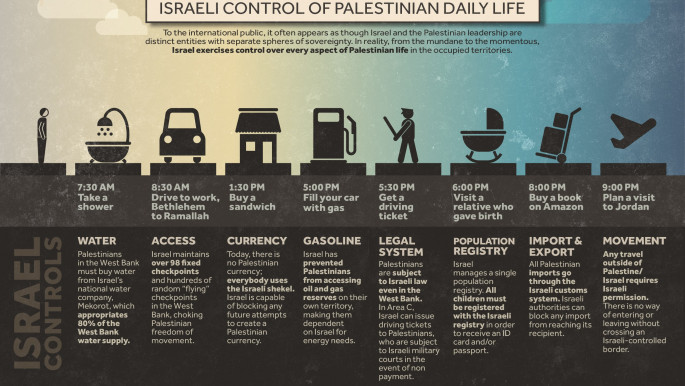Majority of Arabs reject normalisation with Israel: Poll
The majority of Arabs reject normalisation with Israel, a new public opinion poll has shown.
The Arab Center for Research and Policy Studies released the results of a poll of 28,000 participants in 13 Arab countries, excluding the UAE.
The centre said the poll was conducted between November 2019 and July this year, showing 88 percent of Arab citizens surveyed reject the thought of their country recognising Israel.
This includes 85 percent of Egyptians, 91 percent of Palestinians, 93 percent of Jordanians and 65 percent of Saudis.
Currently four Arab countries officially recognise Israel: Egypt, Jordan, the United Arab Emirates and Bahrain.
Saudi Arabia is currently being pressured by the US to normalise relations with Israel.
US Secretary of State Mike Pompeo on Wednesday encouraged Saudi Arabia to recognize Israel, in what would be a massive boost for the Jewish state amid normalisation by two other Gulf Arab kingdoms.
Meeting Saudi Foreign Minister Prince Faisal bin Farhan, Pompeo said the agreement "contributed greatly to our shared goals for regional peace and security."
"They reflect a changing dynamic in the region, one in which countries rightly recognize the need for regional cooperation to counter Iranian influence and generate prosperity," Pompeo said.
"We hope Saudi Arabia will consider normalizing its relationships as well. We want to thank them for the assistance they've had in the success of the Abraham Accords so far."
A poll earlier this month showed similar findings of anti-normalisation sentiments in the Arab world, with 90 percent of Arabic-language social media comments on normalisation were found to be negative.
The study looked at comments and coverage on Facebook, Twitter, Instagram and YouTube social media platforms between 12 August and 8 September, just before officials from the UAE, Bahrain and Israel signed the deals at a White House ceremony.
Only ten percent of the comments were viewed as positive in some way. Just under two-thirds of those mentioned the boost the agreements will provide to "security", while one-third said it will bring economic incentives.
"Normalisation is treason" and "Bahrainis against normalisation" were among the most popular hashtags at the time, which reached more than 100 million people between 12 August and 8 September.
‘Normalisation is betrayal’
The UAE and Israel announced a surprise normalisation deal on 13 August and together with Bahrain signed the agreement at the White House on 15 September.
The deals broke consensus among Arab states that any peace agreements with Israel should hinge on a Palestinian state being established.
Israel continues to occupy the Palestinian territories, besiege Gaza, and plans to annex large parts of the West Bank - despite the UAE claiming its normalisation agreement had put a halt to the land-grab.
Prime Minister Benjamin Netanyahu will present the deal to the Israeli government for approval on Monday, while a debate and vote in parliament will take place on Thursday.
Other Arab states are expected to join the UAE and normalise relations with Israel, while Kuwait, Qatar and others have rejected a deal without recognition of a Palestinian state.
Follow us on Facebook, Twitter and Instagram to stay connected





 Follow the Middle East's top stories in English at The New Arab on Google News
Follow the Middle East's top stories in English at The New Arab on Google News
![Israeli forces ordered bombed Gaza's Jabalia, ordering residents to leave [Getty]](/sites/default/files/styles/image_330x185/public/2176418030.jpeg?h=a5f2f23a&itok=_YGZaP1z)

